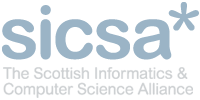19 August 2022,
by Tiwonge Msulira Banda, Robert Gordon University
We all know that an electric motor gets hot when it is running. But do you know that the heat coming from the motor poses a big challenge to engineers that design motors? More generally, have you ever wondered how electric machines, e.g. motors or generators are designed?
The heat that comes from a motor or generator during operation can damage the device if the heat is not properly managed. In trying to model heat transfer in electrical machines, electrical engineers have often relied on numerical techniques, which rely on expert knowledge. However, these techniques are general and computer intensive. Today, data-driven modelling techniques are becoming popular in modelling heat transfer in electrical machines.
Engineers that design electrical machines deal with multiple and often competing objectives. The objectives may include maximising efficiency, reducing cost, and many other desirable operational characteristics. An optimal design therefore involves trade-offs between the different objectives in question. Multi-objective Evolutionary Algorithms, which are a group of algorithms that are inspired by nature, are used in identifying optimal designs. The challenge with the use of these techniques in electric machine design is that the algorithms take long and need significant computing power to evaluate each design to identify the optimal design solutions. Depending on the problem and the number of evaluations required, the process can take weeks or even months to complete.
My PhD research trying to address these two problems: modelling heat transfer in electrical machines and speeding up the optimisation process of electric machine design. The research is part of a collaboration between Robert Gordon University in Aberdeen and Johannes Kepler University in Linz, Austria.
I was awarded a SICSA Saltire Emerging Researcher Scheme grant to undertake a six week research visit at Johannes Kepler University, our collaborating university (from 1 June to 14 July 2022). The purpose of the visit was for me to better understand the domain problem within which my research falls and to build relationships with collaborators. As a computer scientist, we use computing techniques to address real life problems and for one to do a good job, an understanding of the problem is always necessary. This was the basis of the research visit.
 At JKU, I was hosted at the Institute of Electrical Machines and Power Electronics (EAL (in German)). EAL is known globally for its research in electrical machines and works closely with the Linz Center of Mechatronics (LCM) a spin-off company from JKU. LCM is one of the world’s leading mechatronics centers and the owners of the SyMSpace, one of the most advanced simulation-optimisation frameworks for mechatronic engineering.
At JKU, I was hosted at the Institute of Electrical Machines and Power Electronics (EAL (in German)). EAL is known globally for its research in electrical machines and works closely with the Linz Center of Mechatronics (LCM) a spin-off company from JKU. LCM is one of the world’s leading mechatronics centers and the owners of the SyMSpace, one of the most advanced simulation-optimisation frameworks for mechatronic engineering.
Before the visit, I had made some progress in modelling heat transfer using datasets that we had received from collaborators at JKU. Upon arrival, the collaborators spent time explaining the whole process of how motors operate and the challenges caused by heat. They also explained how the data we earlier received was collected and what each attribute meant. To me this was important because I transitioned from just looking at the data as such, to understanding what each data point meant.
 During my stay I worked alongside staff and students from EAL and other visiting engineering students from China and Italy. I held regular meetings with my collaborators who provided feedback to the work I was going and answered questions that I had. I was introduced to more research output on the subject matter as I continued to carry out my research in modelling heat transfer. I also worked on additional modelling problems.
During my stay I worked alongside staff and students from EAL and other visiting engineering students from China and Italy. I held regular meetings with my collaborators who provided feedback to the work I was going and answered questions that I had. I was introduced to more research output on the subject matter as I continued to carry out my research in modelling heat transfer. I also worked on additional modelling problems.
I completed my visit on 14th June 2022 and returned to Aberdeen with a good understanding of electrical machines and the domain problem that my research is addressing. I also know the people at JKU that I will continue to work with for the rest of my PhD programme. In the coming weeks to months, we will continue to work together with collaborators at JKU and produce manuscripts for presentation at relevant conferences.
I believe that my visit strengthened collaboration between RGU and JKU in some way and between Scotland and Austria more broadly.
I would like to thank SICSA for awarding me the grant, collaborators at JKU for hosting me, my supervisors at RGU for their support and admin staff at the National Subsea Centre for making the logistical arrangements. Thank you all.























